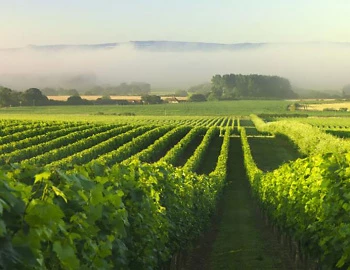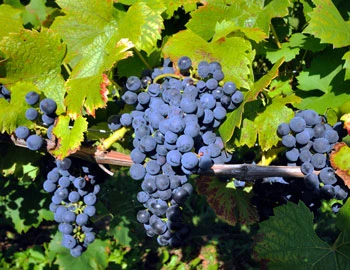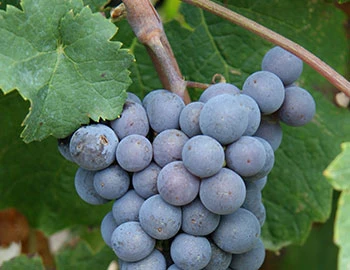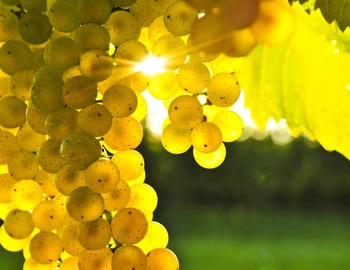Nyetimber 1086 2009
Sussex, English Sparkling Wine, 750 ml

| Grape variety: | Chardonnay, Pinot noir, Pinot meunier |
| Producer: | Nyetimber |
| Origin: | United Kingdom / West Sussex |
| Other vintages: |
Description
England's first prestige cuvee ever, represents the zenith of Nyetimber wine production. The vintage is characterized by a full-bodied and rich fruit character as well as a spicy and caramelized taste (the result of almost a decade of maturation). Its texture and richness of facets allow it to be combined with a variety of the most complex and delicious ingredients, which underline the exquisite character of the wine.
Celebrate the Art of Sabring!

With its elegant design, this champagne sabre is not only an impressive eye-catcher at any celebration and an indispensable tool for stylish sabering, but also the perfect gift for all passionate sparkling wine lovers.
Attributes
| Origin: | United Kingdom / West Sussex |
| Grape variety: | Chardonnay, Pinot noir, Pinot meunier |
| Label: | Vegan |
| Ripening potential: | 10 to 12 years |
| Drinking temperature: | 10 to 12 °C |
| Food Pairing: | Apéro pastries, Whitefish fillets à la meunière, Apéro riche, Fresh water fish with cream sauce |
| Vinification: | fermentation in steel tank, bottle fermentation, fully destemmed |
| Harvest: | hand-picking, in small boxes |
| Maturation: | long cultivation, on the yeast |
| Maturation duration: | 36 months |
| Volume: | 12.0 % |
| Note: | Contains sulphites |
Nyetimber
For the last quarter-century, England has played a very special role in the world of wines – an exotic in moist and chilly northern Europe.
When you think of England you might think of umbrellas, charm, and bowler hats. Specifically umbrellas, since British weather is famously rainy. Few people know that winegrowing in England is historically documented back to the 7th century. Thanks to the Gulf Stream, the climate is mild enough for certain types of grapes to grow and fully ripen. The change in climate during recent decades has brought some advantages to English winemakers, improving growth conditions and encouraging many to try their luck at winegrowing.

Pinot noir
Blueprint of the terroir
No other variety expresses its terroir as precisely as Pinot noir. It is a sensitive, fragile grape. But when it succeeds, it gives the world some of its very greatest wine plants. It especially excels in Burgundy, where it has been cultivated for at least 700 years. Even in the middle ages, it was considered so precious that it was kept separate from other grapes so as to not diminish its value. The finest examples are delicate and fragrant with aromas of cherries and red berries. With maturity, notes of forest floor, leather and truffles enter as well. An irresistible fruity sweetness still shines through, even after several decades. The Pinot noir does well in cool locations: in Switzerland and in Germany, where it is known as Blauburgunder and Spätburgunder respectively; in Alsace and in South Tyrol, in Oregon, New Zealand and Tasmania. Not least, it yields fantastic champagnes. It is a wonderful culinary companion. With its soft tannins and charming bouquet, it meshes with everything, from Güggeli and cheeses to fried fish.

Pinot meunier
Freshness boost for champagnes
Many fine white hairs on the underside of the leaves give this red grape its name. "Meunier" translates to miller, an allusion to the impression that the plant has been dusted with freshly ground flour. Its main habitat is in Champagne. Alongside Pinot noir and Chardonnay, it forms the third component of the classic champagne cuvée. It contributes fresh acidity and youthful fruit to the sparkling wines. It is only very rarely into champagne by itself, but the few examples are worth tasting. In German, Pinot Meunier is also known as Müllerrebe or misleadingly as Schwarzriesling (black Riesling).

Chardonnay
King or beggar?
Hardly any variety of vine shows such a broad spectrum of quality as the Chardonnay. Its wines range from faceless neutrality to breath-taking class. It is an extremely low-maintenance vine, which explains why it is grown around the world – even in places where it probably should not be. The aromas of the Chardonnay variety are not very pronounced: a bit of green apple, a little hazelnut; in warmer latitudes, also melon and exotic fruits. The wines are often defined by maturing in casks. They develop more or less subtle notes of butter, toasted bread and vanilla. The grapes achieve their highest expression in their region of origin, Burgundy. Its heart beats in the Côte de Beaune: one might think of the plant growth of Meursault or Puligny-Montrachet. With their finesse and complexity, they can survive for decades. Chardonnay also achieves first class in some Blanc-de-Blancs champagnes. It additionally yields great wines in the Burgundian Chablis, and increasingly in Australia and Chile. A simple rule of thumb for pairing with food: When butter and cream are involved, you cannot go wrong with Chardonnay.



